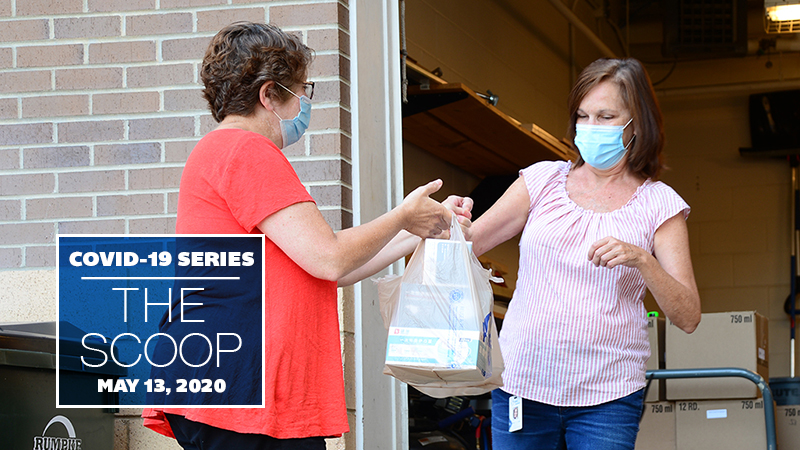Danielle V. Minson — Raising the Bar

How to Plan in Radical Uncertainty
Sixteen years ago, the month I moved my family to Cincinnati, Rabbi Sigma (Sissy) Coran did the same. We both came to lead organizations that needed some rebuilding at the time. Soon, we were collaborating to guide the brainstorming and negotiating that led to the community purchasing Rockdale Temple’s land to build our Jewish community center. Last Friday, our community lost this tough, compassionate, funny, wise leader; this mensch. And I lost a dear colleague and friend.
Somehow, Rabbi Coran managed to rebuild the Rockdale Temple congregation, while also a devoted mother of four and a teacher, mentor, and friend to hundreds around the world. She was also a strong community leader. When the community needed to gather, remember, grieve, or advocate, she was there.
She was an ardent member of the Cincinnati 2020 Steering Committee, which developed our first community-wide vision. And, last month, despite the clear acceleration of her illness, she participated vigorously in the first meeting of the new Cincinnati 2030 Advisory Committee. It feels impossible that she’s gone.
Rabbi Coran faced hardship head on. We need to do the same. We need to face the reality COVID-19 has changed our world and made it less predictable than ever. We don’t know exactly how yet, but we know that much of the shutdown’s pain—through joblessness, business failures, and other disruptions—is still to come.
Planning for a successful community is a key reason the Federation exists. But now, how we plan has to change. But how do you plan when none of us can know how and when we will emerge from this pandemic shutdown and its effects?
With our 124 years of expertise, we know that we need new plans, based on this new reality. We are sketching out combinations of best and worst case scenarios, for the next two years, on three levels—public health, the economy, and societal norms (e.g. when will we feel comfortable gathering in large groups). The Federation has also started engaging with our community organizations about how to adapt to these scenarios.
At the same time, our SAFE Re-Open group is illuminating options and risks for the rest of 2020 by summarizing the complex and changing regulations for various facilities and programs. The group’s first Zoom meeting on Friday had full participation from 43 participants, including Reform, Conservative and Orthodox congregations; schools; Hillels; and partner agencies.
Here’s what you accomplished this week, through our partner agencies:
Through the Federation-supported Chaver Fund, Jewish Family Service (JFS) is helping individuals pay their transportation, medical/pharmacy needs, rental payments, mortgage assistance, utilities, and other necessary bills. JFS estimates the need will double through the end of 2020, in part because of an influx from the middle class.
Halom House is doing much better after successfully containing an outbreak of COVID-19. Their Executive Director, Amy Fischer, said, “We have had an overwhelming response from the Jewish community in wanting to wrap their arms around us in our most challenging time.”
The Jewish Community Relations Council (JCRC) continues to remain committed to our mission during these uncertain times, striving to advocate for just causes and ensure the security of our community. To help us fulfill our mission during COVID-19, we want to connect you with expert leaders in various fields, who are hosting webinars and virtual talks about relevant social and political issues and ways to act for a more just society. For upcoming live webinars, check out our calendar of curated online events. In addition, we have compiled a list of resources on racial justice. They include suggested reading, viewing, and listening, for people of all ages who want to learn more about the issues facing the Black community and what they can do to help.

